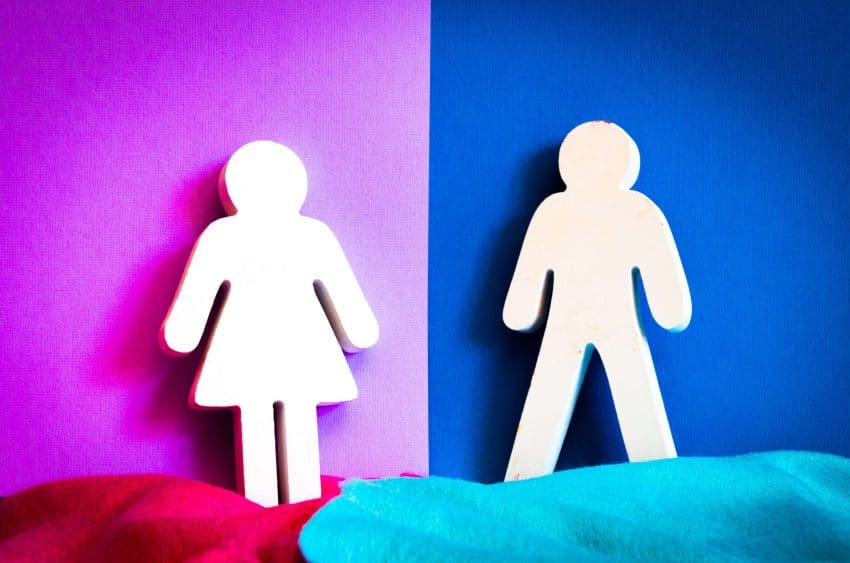What Is Intercultural Communication: Learning New Styles
Updated: June 19, 2024

Intercultural communication is a necessary part of today’s world, whether in business, school, or everyday life. It is essential in being a part of the growing global community and knowing how to communicate cross-culturally is a skill you must have to succeed. But just what is intercultural communication? Let’s dive into what is intercultural communication, and how you can increase your intercultural communication skills to succeed in whatever you set your mind to.
Cultures Meet Communication
Everyone communicates, and everyone has a culture, whether it is highly defined or not. This means that inherently, we all must communicate with people of other cultures. That is what intercultural communication is all about.

Photo by fauxels from Pexels
Defining Culture
Culture isn’t only about the language you speak, the foods you eat, and the way you dress. There are much more nuanced aspects of our everyday life that can be attributed to culture. Our lifestyle, including ways of personal life, family life, and social life are all part of our culture.
Introducing Intercultural Communication
If you are just beginning your journey of intercultural competence, it can be confusing where to start. One of the best ways to introduce yourself is to start with the concept of intercultural communication, discussed below.
What Is Intercultural Communication?
Intercultural communication is much more than just your typical types of communication such as verbal and nonverbal. It is about the broader exchange of ideas, beliefs, values, and views.
Cultural values impact how people speak, write, and act — all essential aspects of communication. Culture also has a lot to do with how people think about and judge other people. Being aware of our own cultural biases, and others’ biases goes a long way in being able to effectively communicate with anyone.
Other Intergroup Relations Terms
Other relevant terms when discussing intercultural communication are multicultural, diversity, and cross-cultural. While these all might seem to be the same, there are small differences that make each unique.
Multicultural means a group or organization that has multiple cultures within it, or is made up of several cultures. Cross-cultural means between multiple groups of different cultures, whereas intercultural means between members of those cultures.
To further clarify, a company might be multicultural, where it fosters many cross-cultural interactions, which means everyone has to be involved in intercultural communication.
Importance Of Intercultural Communication
Intercultural communication is an important part of intercultural competence — or the ability to effectively function across cultures, and with those from other cultures. As our world gets smaller and globalization gets stronger, intercultural competence and great intercultural communication become a necessity to be successful.

Photo by nappy from Pexels
Applying And Managing Intercultural Communication
Intercultural communication skills must be applied when you are in an intercultural exchange. Use these 7 tips when managing intercultural communication:
1. Common Traps And Problems
Every culture has their own gestures and ways of speaking. If you know in advance that you will be speaking to a person or group of another culture, it’s important to educate yourself on some common faux-pas of that culture.
For example, a handshake may not be the appropriate way of greeting in every culture. Similarly, Spanish speakers find that specific words can have either neutral or negative meanings depending on the country you are in.
2. Learn Phrases In Their Language
Learning a few common phrases in another language is an important part of intercultural communication. It shows that you recognize the cultural difference, respect their culture, and are willing to learn about it. Start with learning hello and thank you if you are meeting with someone you know speaks another language.
3. Adapt Your Behavior
When you enter in an intercultural communication exchange, there may be an expectation on both sides for the other party to adapt to the others’ cultures. If you stop expecting that, and start adapting your own behavior, you will find more willingness on both sides to understand one another.
4. Check Your Understanding
Listen carefully and check your own understanding regularly throughout the conversation. If you find you aren’t able to articulate back what the other person is saying, don’t be afraid to ask for clarification. It’s better to ask than to walk away with misunderstandings.
5. Apologize
If you realize you have offended someone, apologize promptly — don’t let it fester or become awkward. It’s better to apologize without needing to than leave someone feeling bad after your conversation.
6. Use Television
Watching series of other cultures can really aid you in intercultural understanding if you have no other way to access that culture. It will help you see cultural norms and how another culture lives, all which will help you effectively communicate with that culture.
7. Reflect On Experience
Try to take a few moments to reflect on previous intercultural exchanges — ones of your own or ones you have simply observed. What made them effective, or what made them not work out the way it was intended? Take note and adjust your future communication accordingly.
Communicating With People Of Different Cultures
Communication across cultures can be a challenge, especially if you’re not accustomed to working with people from other cultures.

Photo by Magda Ehlers from Pexels
An Understanding Of Difference
First, in order to effectively communicate with people of other cultures, there is a fundamental aspect you must be aware of which is understanding differences. Different cultures have different standards, expectations, and norms, and you must realize that those differences shape individuals in some ways but they are not bound by those ways.
Developing Intercultural Sensitivity And Competence
By default, we automatically feel something different when we interact with someone from an unfamiliar culture, or one that is starkly different than our own. If you want to increase your intercultural communication abilities, it is up to you to work on your intercultural sensitivity.
It starts with the idea that as you begin to recognize and understand cultural differences and the more you interact with people of other cultures, the more competent you become and the more complex your ideas of culture become as well. Therefore, the more sensitive you will be each time you communicate interculturally.
Intercultural Communication At University Of The People
University of the People is an American accredited university that prides itself on its globality and accepting applicants from all countries, backgrounds, and cultures. It is a high priority of ours to maintain excellent intercultural communication, and to instill these skills into our students. No matter what degree program you choose, you can count on being able to use it in conversation across a range of cultures.
The Bottom Line
So, what is intercultural communication, and why should you improve your intercultural skills? Our world is only getting smaller, and the ability to competently communicate with other cultures is vital for success in all areas of life. Adapt your behavior, check your understanding, reflect on your experiences and follow our tips to foster excellent intercultural communication.




